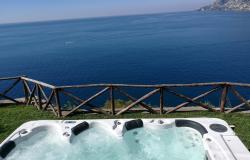 Marine biologists expressed alarm on Monday over the deaths of three whales this month in seas around the southern port of Naples.
Marine biologists expressed alarm on Monday over the deaths of three whales this month in seas around the southern port of Naples.
Some experts fear a virus could have killed the whales, the first of which was found dead in waters near Amalfi on July 1.
The second was found near the famed island of Capri on July 15 while the third was found floating in seas off Salerno two days ago.
Tests are now being carried out on samples taken from the carcasses to try and determine the cause of death.
Nicola Maio, the head of the local cetacean research centre and curator of Naples University's zoological museum, told reporters: "We're beginning to get very worried".
"Three whales dying in the same area in such a short space of time could indicate that a virus is at work," he said.
But Maio said pollution could also be to blame.
Marine biologist Flegra Bentivegna, who took samples from the first two dead whales, expressed concern over the possibility of a virus as well.
But she stressed that pollution would be a factor in any case because it made the whales more vulnerable to illness.
Bentivegna said the sea was becoming increasingly toxic for whales and other cetaceans and that those that lived in coastal waters were particularly at risk due to industrial chemicals and pesticide run-off from the land.
If the whales' feeding ground is contaminated, their body tissues build up dangerous concentrations of toxic chemicals such as lead, mercury and pesticides.
This weakens the whale and also affects its milk, Bentivegna said.
"The sea has become a huge rubbish tip," she said.
She said pollution could also have caused the whales' deaths by reducing levels of plankton, leaving them starving.
Whales eat tons of plankton, which is particularly sensitive to pollution.
Bentivegna did not rule out rising sea temperatures as being another contributory factor.







